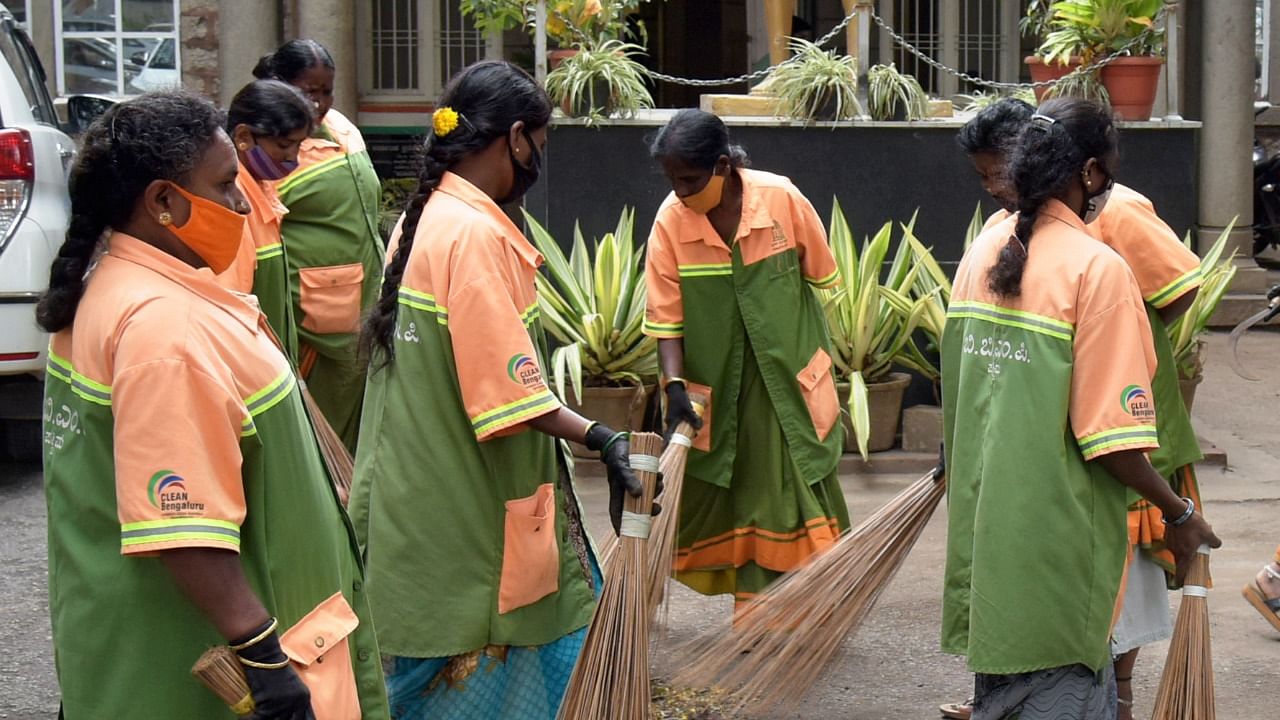
The travails of sanitary workers, particularly garbage collectors, seem to be never-ending, with the BBMP remaining apathetic to their basic demands and denying them salaries for several months at a stretch. The workers have now gone on a flash strike demanding, among other things, regularisation of service and equal pay for equal work. In 2018, the BBMP introduced direct payment and biometric attendance for pourakarmikas, who are responsible for cleaning streets, following complaints of contractors either not paying them their full salaries or raising bogus bills against the names of non-existent workers. But drivers and assistants of auto-tippers, who lift thrash from households and public garbage bins and transport it to dump yards, continue to be under the mercy of contractors and are entitled to a much lower salary than pourakarmikas. With even these low salaries not being released, it has become a question of survival for these workers, who have come to depend on tips from households and free food provided by some generous restaurateurs. They are asking that they be treated on par with pourakarmikas.
Government employees have not suffered any salary cuts during the pandemic or lockdown and the central government has indeed even announced a 25% increase in dearness allowance, but pourakarmikas and garbage-lifters, who are expected to work without a break come rain or shine, continue to remain a neglected lot, denied of even basic amenities. Though pourakarmikas have been declared as frontline workers by the BBMP, they work under the most unhygienic conditions, without even minimum protective gear like gloves, leave alone hand-sanitisers. The workers, especially women, are put to great inconvenience in the absence of restrooms or hot water to wash themselves up after literally working in filth. They have also demanded a compensation of Rs 30 lakh to those among them who died of Covid-19 and Rs 10 lakh as life security upon retirement. Another demand is to increase the ratio of civic workers to population from 1:700 to 1:500, which is reasonable and just.
The manner in which civic workers have been treated is nothing short of a grave human rights violation. It is unfortunate that the BBMP has been inconsiderate towards its foot-soldiers, especially during the pandemic. The government and civic bodies across the state should immediately wake up to their plight, regularise their services and evolve an insurance scheme to take care of health exigencies, while also improving their working conditions. The people who risk their own lives to keep our cities clean cannot be treated as sub-human, denied of equity and fairness.